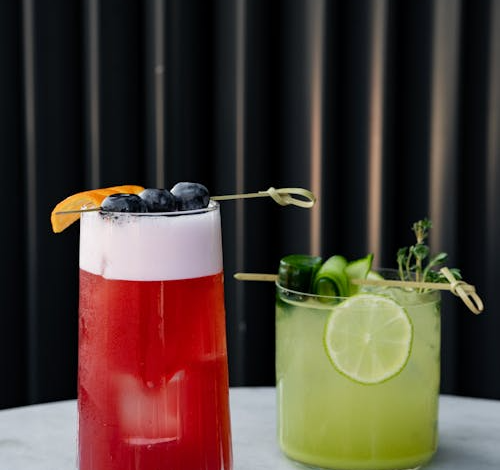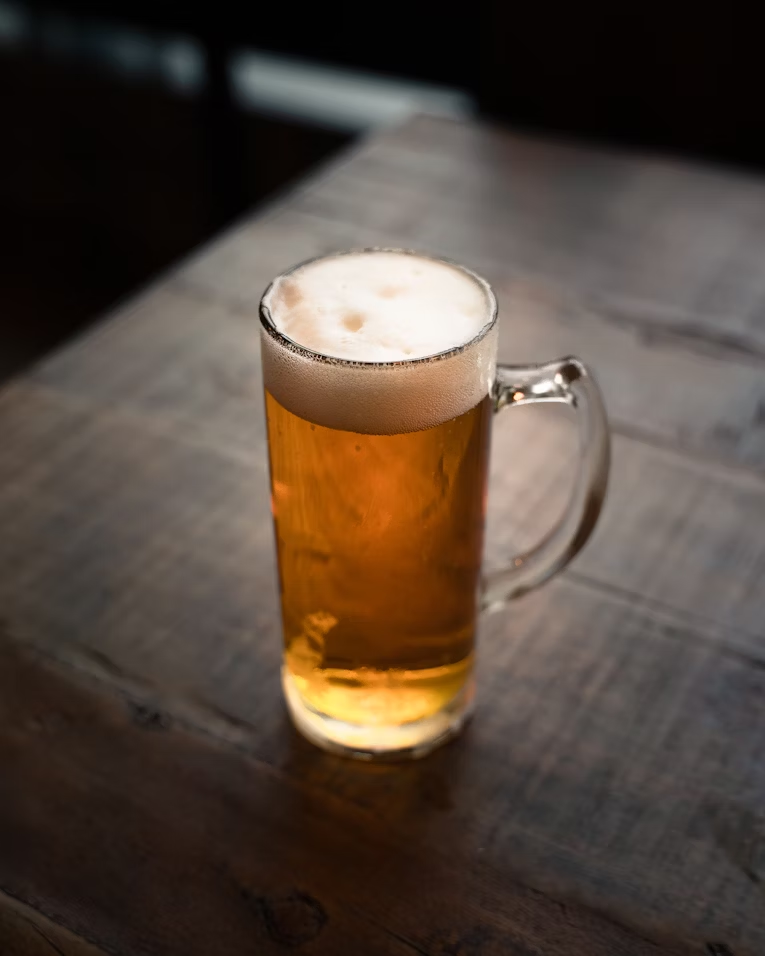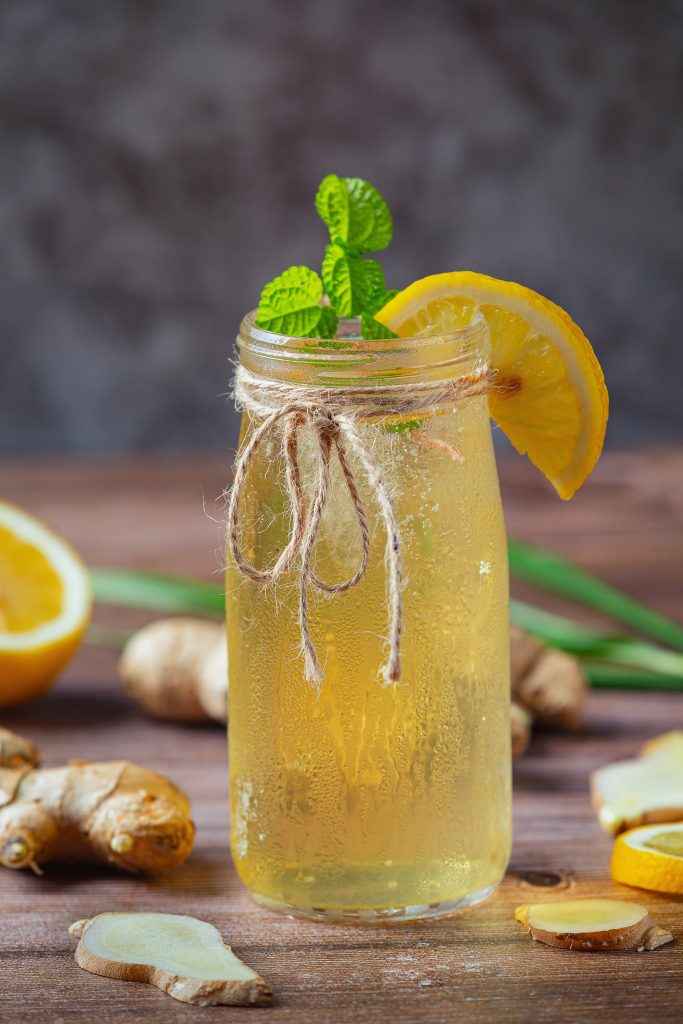5 Healthiest Alcoholic Drinks You Can Enjoy in 2025

Alcohol is part of social life worldwide, including South Africa. While no alcohol is completely “healthy,” some drinks are better choices if you want to enjoy alcohol with fewer harmful effects. This article explains the five healthiest alcoholic drinks in 2025 based on expert advice and scientific research. It uses simple language to help you understand and make smart choices. Remember, moderation is always key to drinking safely.

ALSO READ: Fake Alcohol on the Rise: How to Identify Counterfeit Drinks in South Africa
Table of contents
- 1. Red Wine: Heart-Healthy with Antioxidants
- 2. Vodka Soda: Simple, Low-Calorie, and Refreshing
- 3. Wine Spritzer: Light and Lower in Alcohol
- 4. Light Beer: A Lower-Calorie Option
- 5. White Wine: A Dry, Elegant Choice
- What About Ginger Beer?
- Responsible Drinking: Your Health Comes First
- Tips for Healthier Alcohol Choices
- Choose Wisely, Drink Responsibly
1. Red Wine: Heart-Healthy with Antioxidants

Red wine is often called a healthy alcohol due to compounds called antioxidants. These antioxidants come from grape skins and include resveratrol, catechins, and anthocyanins. Studies suggest they may reduce inflammation, help lower cholesterol, and protect the heart. Moderate drinking—usually one glass per day—might bring these benefits.
Why choose red wine?
- Contains antioxidants that may protect heart health.
- Often lower in sugar than sweet drinks.
- Offers a rich, enjoyable flavour.
Be careful: Drinking too much alcohol can harm your liver, blood pressure, and overall wellness. Always drink red wine in moderation. Select a dry red wine to keep sugar content low.
2. Vodka Soda: Simple, Low-Calorie, and Refreshing

Vodka soda is a popular cocktail made with vodka, soda water, and a wedge of lime or lemon. It is often called one of the healthiest alcoholic drinks because it contains few calories and almost no sugar.
Benefits of vodka soda:
- Low in calories, usually around 90-100 per drink.
- Minimal sugar content.
- Vodka usually has fewer impurities, reducing hangover risks.
Tip: Avoid sugary mixers, which add unwanted calories and sugar. Stick to soda water for a light drink that won’t overload your body.
3. Wine Spritzer: Light and Lower in Alcohol

A wine spritzer mixes wine (usually white or rosé) with soda water. It is popular in warmer weather because it’s refreshing and lighter than pure wine.
Why it’s a healthy choice:
- Diluting wine with soda water reduces alcohol and calorie intake.
- Keeps sugar levels lower, especially if you choose dry wine.
- The soda water adds bubbles without adding sugar.
Watch out: Pre-mixed canned spritzers may contain added sugars. Check labels carefully and enjoy plain spritzers when possible.
4. Light Beer: A Lower-Calorie Option

Light beer is brewed to contain fewer calories and carbs compared to regular beer. This makes it a better choice if you want the beer taste with less impact on your waistline.
What makes light beer healthier?
- Contains fewer carbohydrates.
- Usually fewer than 100 calories per serving.
- Often easier to digest.
Reminder: Drinking too much beer, even light versions, can cause weight gain (“beer belly”) and affect heart and liver health. Moderation matters most.
5. White Wine: A Dry, Elegant Choice

White wine shares many benefits with red wine but generally has fewer antioxidants. However, it usually has lower alcohol levels, which can reduce liver strain.
Reasons to drink white wine:
- Contains valuable polyphenols with anti-inflammatory properties.
- Dry white wines such as Sauvignon Blanc or Pinot Grigio tend to have less sugar.
- Usually less than 125 calories per 5-ounce serving.
Health tip: Choose organic or dry white wines without added sugars or preservatives. Always drink white wine in moderation to keep it a healthy option.
What About Ginger Beer?

Commercial ginger beer usually contains less than 0.5% alcohol and is considered non-alcoholic. Most brands do not contain probiotics because they are pasteurised. However, homemade fermented ginger beer can have 1-3% alcohol and may contain live bacteria, which act as probiotics.
Responsible Drinking: Your Health Comes First
The World Health Organization (WHO) published the following statement in 2023: “When it comes to alcohol consumption, there is no safe amount that does not affect health.”
South Africa’s health authorities advise adults who choose to drink to always do so responsibly. Understanding what constitutes a standard drink can help. For example, 340ml of beer (4.5% ABV), 150ml of wine (12% ABV), or 40ml of whisky (40% ABV) each contain about one standard drink.
- There is no completely safe level of alcohol consumption. Drinking less is always better for your health.
- Excessive and binge drinking increase risks of cancer, heart disease, stroke, liver damage, and accidents.
- Women face higher risks at lower amounts of drinking compared to men due to biological differences.
- Never drink and drive. Alcohol should not be consumed by persons under 18, pregnant women, or people with certain medical conditions.
- Moderation and knowing your own limits are the best ways to reduce harm.
Tips for Healthier Alcohol Choices
- Watch your serving sizes to limit alcohol intake.
- Drink water between alcoholic beverages to stay hydrated.
- Avoid sugary mixers to reduce calorie and sugar consumption.
- Eat before drinking to slow alcohol absorption.
- Pay attention to your body’s signals and stop if you feel unwell or overly intoxicated.
Choose Wisely, Drink Responsibly
Enjoying alcoholic drinks can be part of a healthy social life when done in moderation. Choosing drinks with fewer calories, less sugar, and cleaner ingredients helps reduce risks. Whether it’s a glass of antioxidant-rich red wine or a refreshing vodka soda, there are options for every taste.
Above all, understanding responsible drinking and prioritising your health will make your choices safer and more enjoyable throughout 2025 and beyond.
Disclaimer: This article is intended for informational and entertainment purposes only. It does not constitute medical, dietary, or health advice. Readers should consult qualified healthcare professionals for personalised recommendations regarding alcohol consumption and health.




